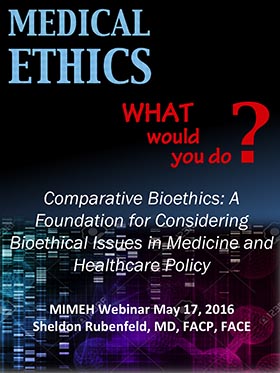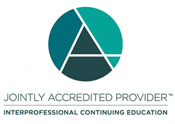
The central role of the medical profession in the design and implementation of “applied biology,” and Racial Hygiene Policy that took place during the Holocaust has broad relevance for a variety of topics within clinical medicine and public policy. This webinar will approach these issues through the lens of Comparative Bioethics. Any individual, group, or national position on the ethical and public policy questions raised by society’s constant desire for progress through medical and scientific advancements depends upon its foundational philosophy. By comparing traditional Jewish medical ethics, the Hippocratic Oath, Nazi bioethics, and contemporary secular bioethics, different approaches to clinical, research, and public health policy issues can be clarified.
Target Audience:
This continuing medical education offering is intended for physicians, pharmacists and nurses.
Learning Objectives:
Upon completion of this knowledge activity, participants should be able to:
- Examine Nazi Racial Hygiene Theory as an all-encompassing way of life that guided the development of theory, practice, and public policy.
- Explore the transgressions in medical practice and the development of public policy that occurred as a result of Nazi bioethics.
- Trace the trajectory of the development of bioethical codes of conduct including traditional Jewish medical ethics, the Hippocratic Oath, Nazi bioethics and contemporary secular bioethics.
- Utilize comparative bioethics to emphasize the importance of the development of a strong moral ethos that values the dignity of the individual above all else.
Acceditation Statement:
In support of improving patient care, this activity has been planned and implemented by the Maimonides Institute for Medicine, Ethics and the Holocaust and the Center for Education Development (CED). CED is jointly accredited by the Accreditation Council for Continuing Medical Education (ACCME), the Accreditation Council for Pharmacy Education (ACPE), and the American Nurses Credentialing Center (ANCC) to provide continuing education for the healthcare team.

Credit Designation:
Center for Education Development designates this live educational activity for a maximum of 1.0 AMA PRA Category 1 Credit™, 1.0 CPE credit (UAN # 0498-9999-16-004-H05-P) or 1.0 ANCC credit.
Participants should claim credit commensurate with the extent of their participation in the activity. Participants must participate in the session and complete an activity evaluation before April 20, 2017. Pharmacists are required to pass the post-test with a minimum score of 70%.
Competencies:
Center for Education Development supports recommendations that will promote life long learning through continuing education. The following desirable physician attributes are addressed through this activity:
- Provide patient-centered care
- Work in interdisciplinary teams
- Employ evidence-based practice
- Apply quality improvement
Required Hardware/Software:
The computer you plan to use should meet the following requirements:
- Peripherals: Computer speakers or headphones
- Monitor Screen Resolution: 320 x 480 or higher
- Media Viewing Requirements: Adobe Reader, Microsoft PowerPoint, Flash Player & HTML
Faculty Bio:
Disclosures:
Faculty reported the following financial relationships. A copy of Center for Education Development's policy on resolving conflicts of interest can be found at www.cedevelopment.org/about.html.
Sheldon Rubenfeld has nothing to disclose.
Center for Education Development
Thomas Zimmerman, PhD (Reviewer, CED) has nothing to disclose.
John Zitel (Reviewer, CED) has nothing to disclose.
Danielle Amodio (Planner, CED has nothing to disclose.
Support Statement:
This activity was supported by an unrestricted educational grant from Maimonides Institute for Medicine, Ethics and the Holocaust
This activity is sponsored by Center for Education Development
Copyright:
Created and published by Center for Education Development. Copyright © 2016 Center for Education Development. All rights reserved. No part of this publication may be reproduced without written permission from the publisher. The material presented at or in any of CEDevelopment.org continuing medical education activities does not necessarily reflect the views and opinions of CED. Neither CED nor the faculty endorse or recommend any techniques, commercial products, or manufacturers. The faculty/authors may discuss the use of materials and/or products that have not yet been approved by the US Food and Drug Administration. All readers and continuing education participants should verify all information before treating patients or utilizing any product.
|
References and Resources
|
|


Not a member? Register here!